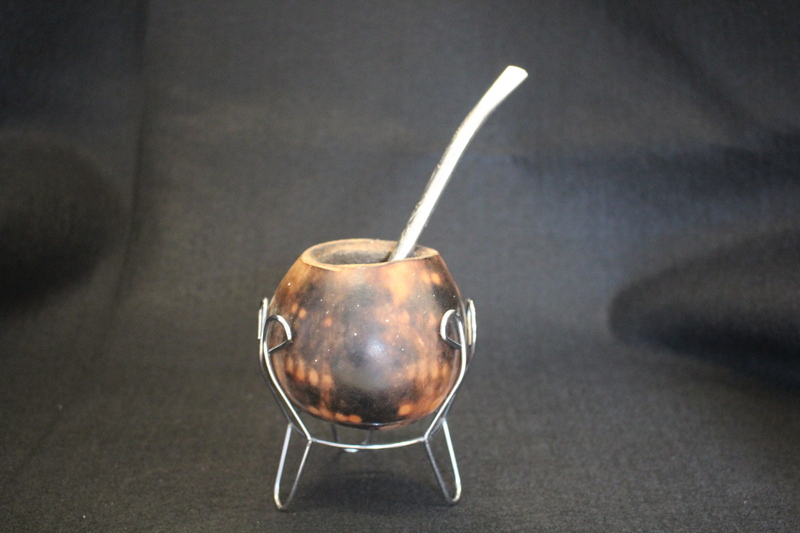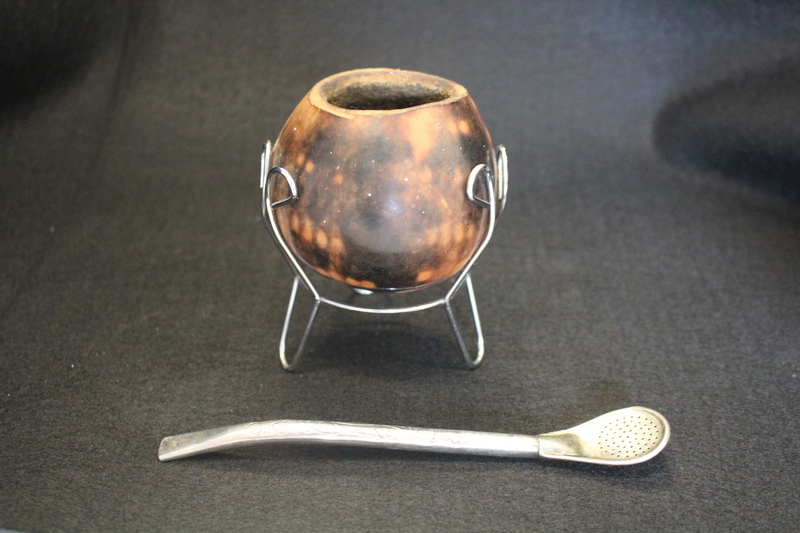Coffee Grinder
Title
Subject
Beverages
Coffee
Coffee brewing
Coffee making paraphernalia
Puerto Ricans—United States
Description
The coffee grinder is from Puerto Rico. The coffee grinder is roughly 40 years old and it originally belonged to Irina’s grandmother. The coffee grinder is the final step in the process to make coffee. First, the children would pick the red coffee beans in a cloth bag, then her grandmother would put all the red beans in a burlap sack to dry until the skin of the beans are dry and brown. Once the beans are dry, they are mashed and the beans are separated from the skin. The beans are then placed in a bowl and placed on top of a fire to be roasted. The beans are stirred with a big wooden spoon until they are dark and ready to be grinded.
In the nineteenth century, there was a global demand for Puerto Rico’s coffee and Spain invested heavily in the Puerto Rican coffee industry. Puerto Rico’s coffee production boomed in the late 1890s and was the country’s major cash crop in 1898. Following the United States occupation of the island in 1898, the island lost its primary market and was unable to access the Spanish and European credit which the industry relied on. Puerto Rico couldn’t compete with less expensive coffee imports from other South American countries.
The production of coffee declined significantly following the hurricane of 1928 and ultimately ended following the hurricane of 1932. Coffee trees take years to mature and farmers couldn’t produce a profitable crop when their trees were crippled by devastating hurricanes year after year. The history of Puerto Rico’s agriculture is one of uncertainty; the island has a history of being influenced by foreign powers and is constantly at the mercy of extreme weather patterns causing distress among farmers. In 1928, a senate report removed coffee as the nation’s cash crop and deemed it a local commodity.
Puerto Ricans migrated from the island to the United States for economic opportunity. There is a continuous flow of Puerto Ricans moving back and forth from the island and mainland. Many Puerto Ricans bring aspects of their culture, such as traditional coffee grinders, with them to their new homes in the United States. Further, Puerto Ricans continue to visit their hometown on the island to enhance and nurture their connection with their cultural traditions.Cruz, Jose E. Identity and Power: Puerto Rican Politics and the Challenge of Ethnicity. Philadelphia, PA: Temple University Press, 1998.
Brooke, Elizabeth Heilman. “Yerba Mate, Ancient Antidote To South America's Heat.” New York Times, April 24, 1991. https://www.nytimes.com/1991/04/24/garden/yerba- mate-ancient-antidote-to-south-america-s-heat.html.
Fitzpatrick, Joseph P., and Lourdes Travieso Parker. "Hispanic-Americans in the Eastern United States." The Annals of the American Academy of Political and Social Science 454 (1981): 98-110.
Hancock, Ralph. Puerto Rico A Success Story. Princeton, New Jersey: D. Van Nostrand Company, Inc., 1960.
Perez, Gina. The Near Northwest Side Story: Migration, Displacement, and Puerto Rican Families. Berkeley: University of California Press, 2004.
Olmedo, Irma A. “Puerto Rican Grandmothers Share and Relive their Memorias.” Centro Journal 13, 2 (2001): 99 – 115.
Opie, Frederick Douglass. “Eating, Dancing, and Courting in New York Black and Latino Relations, 1930 – 1970.” Journal of Social History. (2008) 42 (1): 79 – 109.
Creator
Source
Publisher
CCSU Public History

